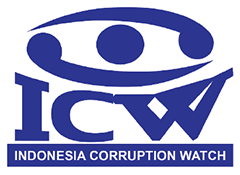
Membership Type: Civil Society Organisation
Website: www.antikorupsi.org
Email: icw@antikorupsi.org
Telephone: +62 81236003034
Full Address: Jalan Kalibata Timur IV/D No. 6, South Jakarta, 12740
Region: East Asia and Pacific
Organisation Contact Name: Adnan Topan Husodo
What is Indonesia Corruption Watch’s (ICW) mission?
We are fighting for a cleaner political, legal and economic system, and bureaucracy, free from corruption and based on social justice and gender equality.
We also aim to strengthen public participation in the policy-making process and in monitoring public policy, such as legal drafting, national and local budget processes, and the law enforcement process in corruption cases.
How are you involved in the Coalition?
We believe it is essential to oversee UNCAC implementation at the national level, especially in Indonesia. Through the UNCAC Coalition we discovered that we did not have to deal with this on our own, because there are other concerned parties that reflect our interests and have similar experiences with UNCAC monitoring around the world.
This Coalition is fascinating for us because it consists of 350 civil society organisations from 100 countries. We have been able to share anti-corruption best practices and knowledge in order to develop a much more effective strategy in the anti-corruption field.
What do you find most exciting about UNCAC work?
Since our core business is dealing with advocacy on policy issues, monitoring UNCAC implementation within the national legal framework is very important for us. The exciting part about UNCAC work is how it accommodates critical engagement with both the public and private sectors, including all related parties and stakeholders. This enables us to work hand in hand and identify the urgent needs of UNCAC compliance.
What, if any, UNCAC related activities have you been involved in?
In 2008, ICW on behalf of other respective civil society organisations conducted an assessment of UNCAC implementation in Indonesia. We presented our independent report at the Anti-corruption Public Forum of UNCAC, 24–26 January 2008 and the 2nd Conference of State Parties (CoSP) in Nusa Dua-Bali, 28 January – 1 February 2008.
In 2013 and 2014 we also conducted research on UNCAC provisions in Indonesia. This enabled us to provide advice to state actors on reforms to the anti-corruption legal framework on issues such as illicit enrichment, trading in influence and asset recovery.
In the context of asset recovery, the Corruption Eradication Commission (CEC) has been eager to apply anti-money laundering and bribery legislation in order to trace assets belonging to corruption suspects. The results have been positive in maximising asset recovery, but have only been applied in certain corruption cases due to the lack of capacity of law enforcement agencies.
Independent reporting gives us the ability to provide an evidence-based evaluation and a platform on which to voice our concerns about accountability and anti-corruption measures that have not been addressed or fulfilled by the government related to UNCAC implementation in Indonesia.



